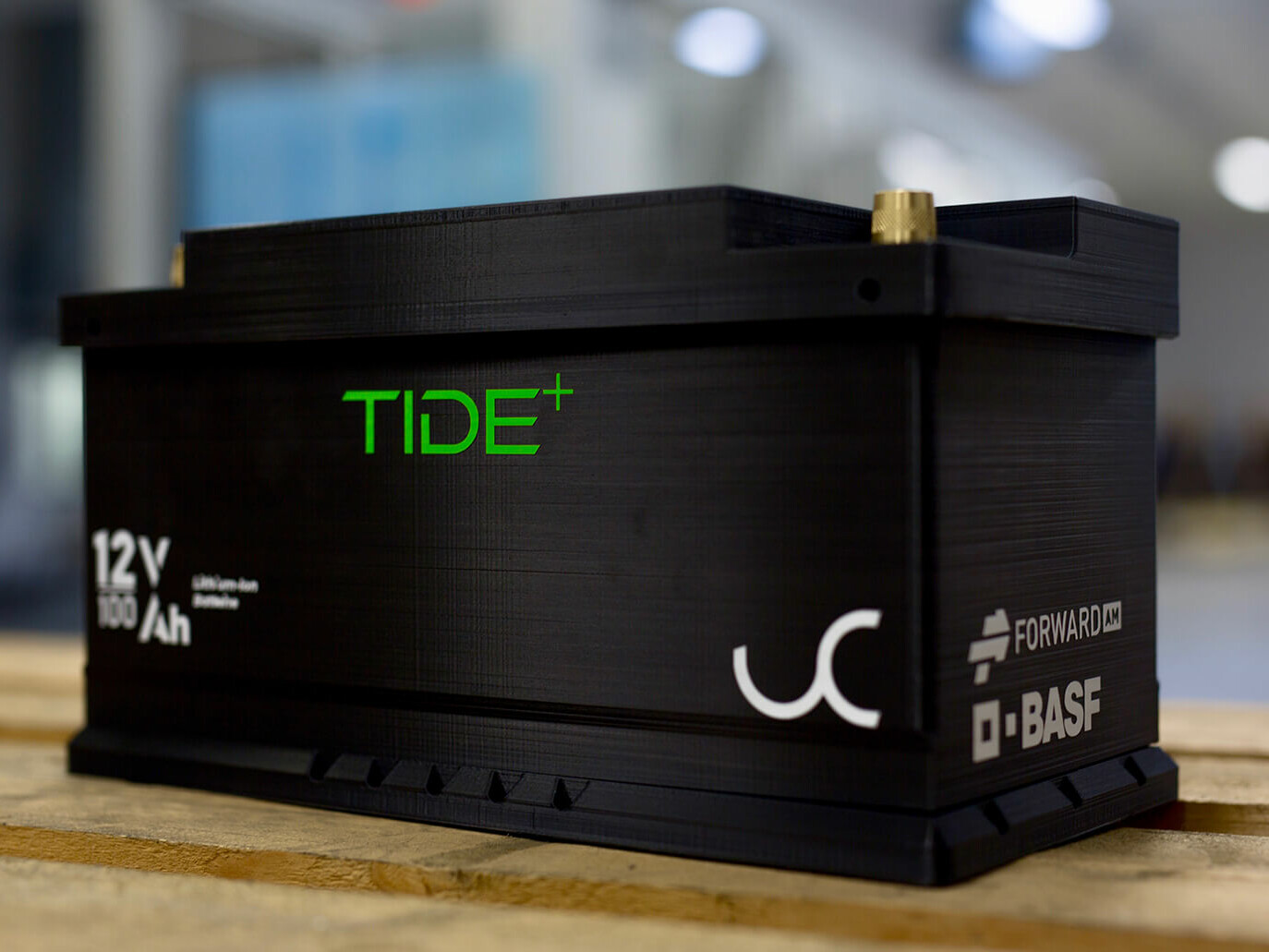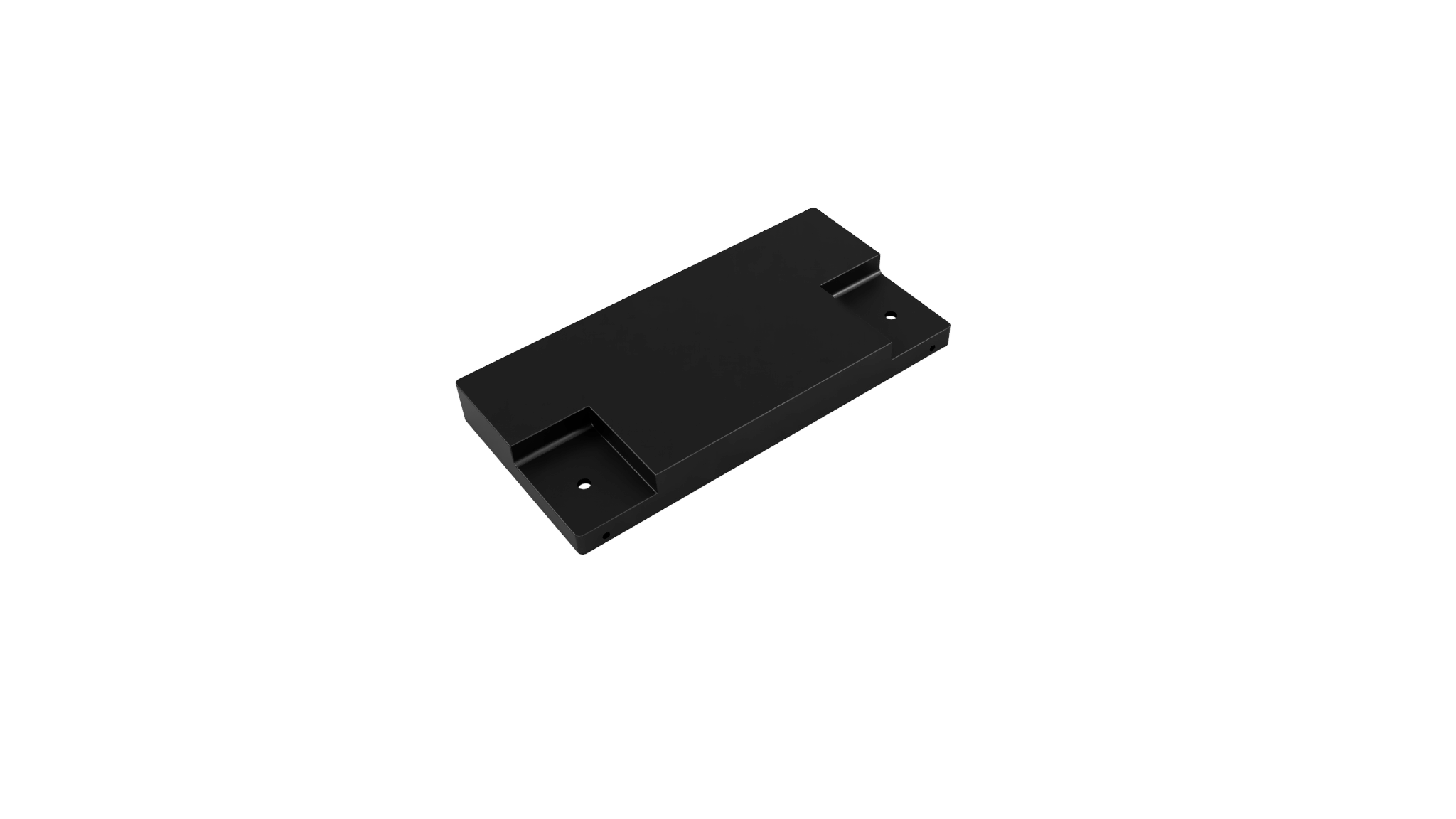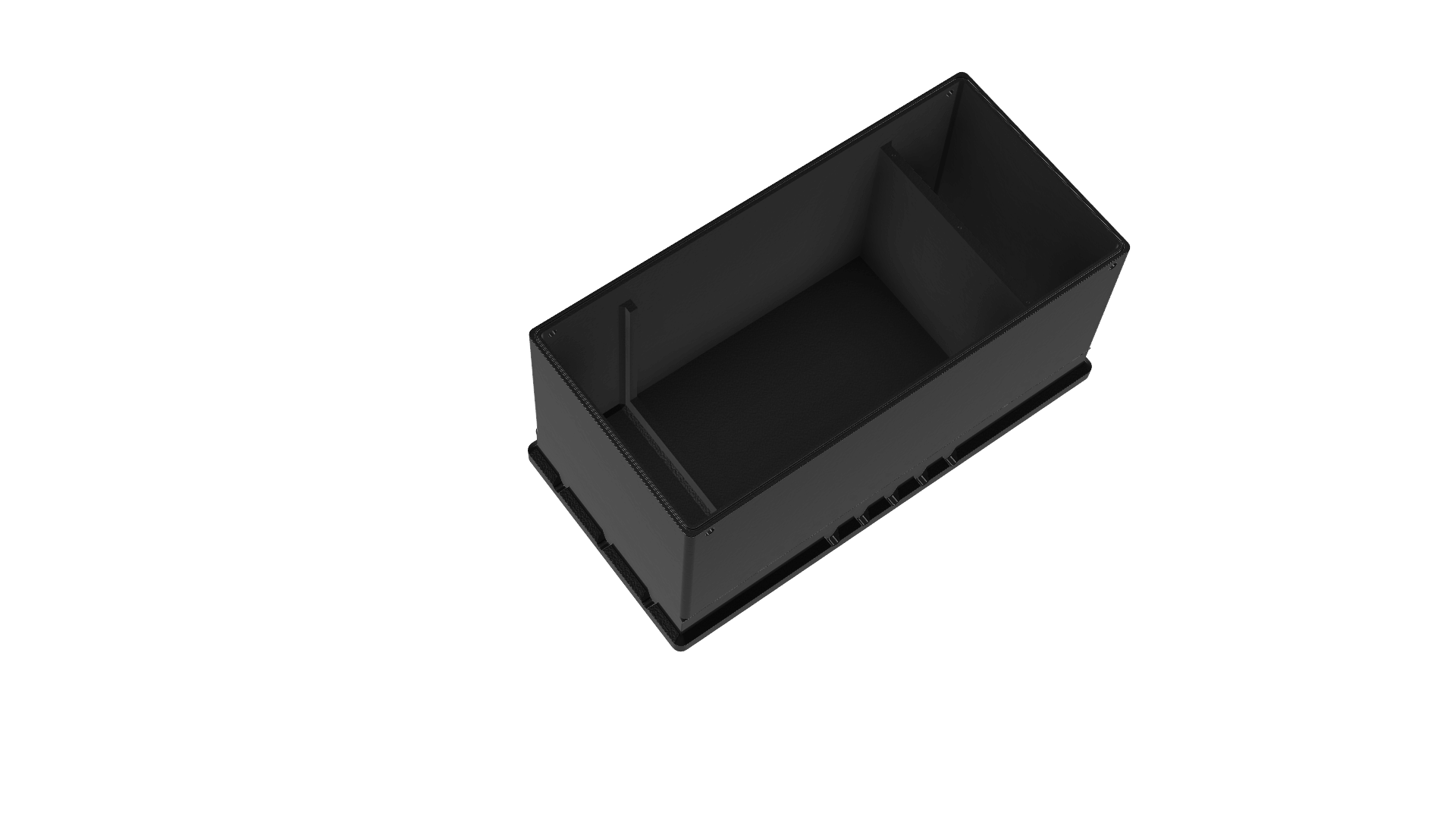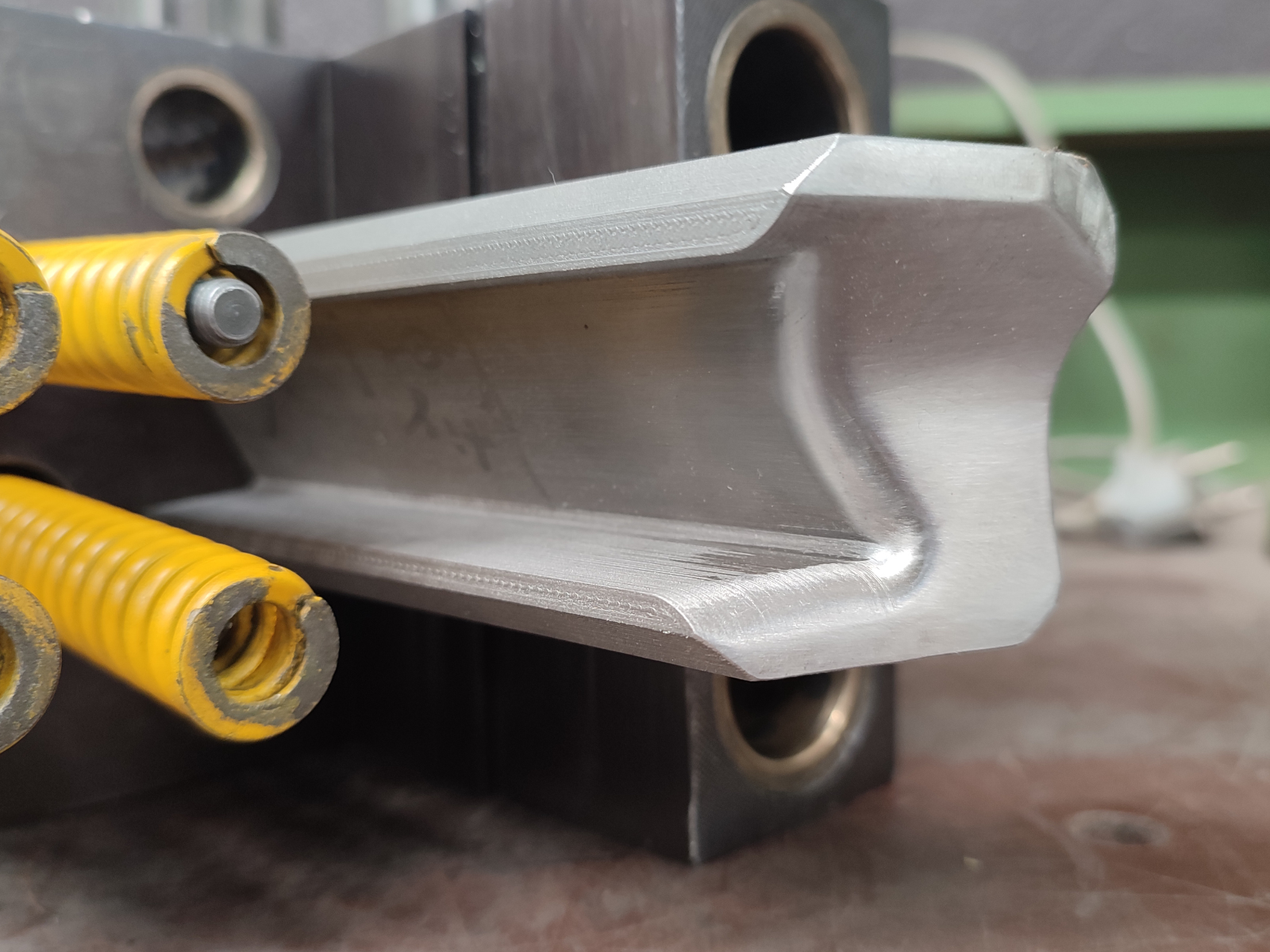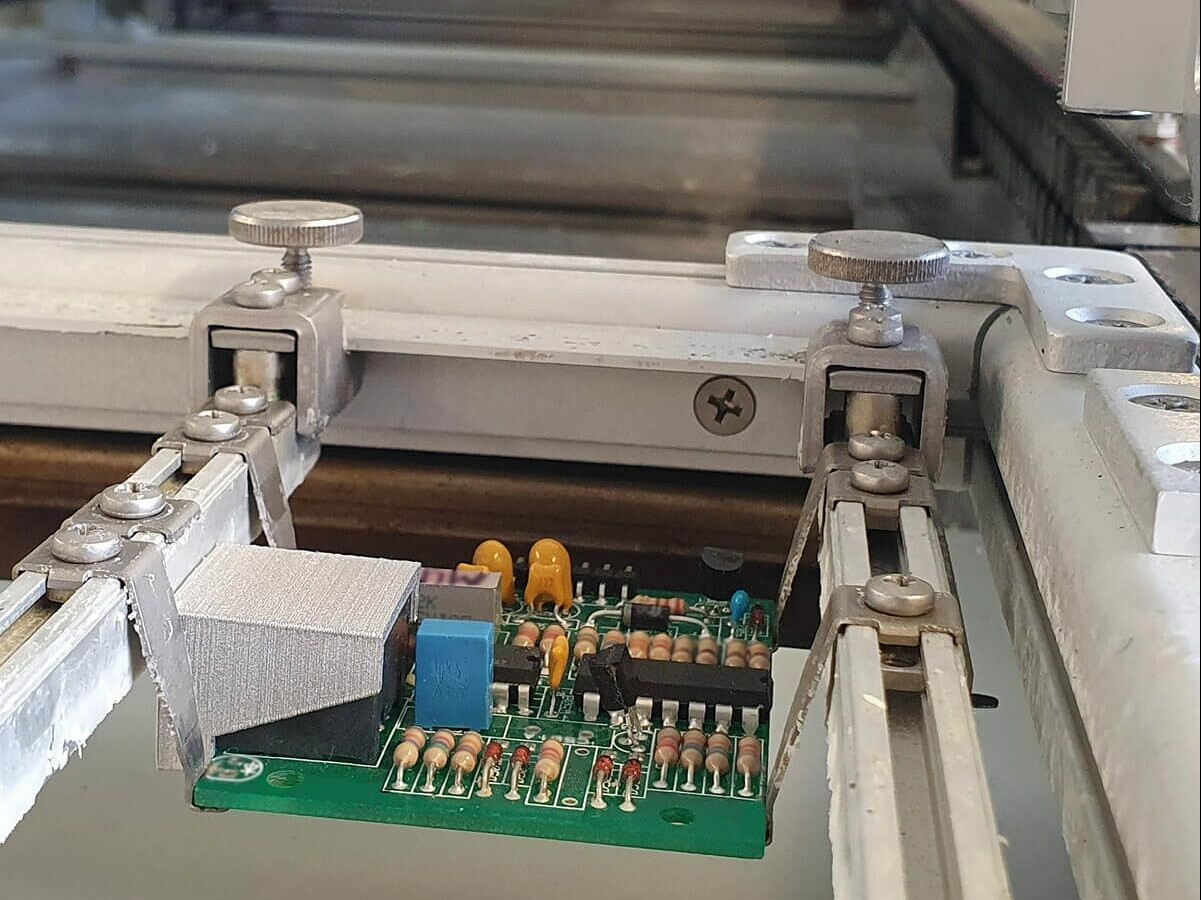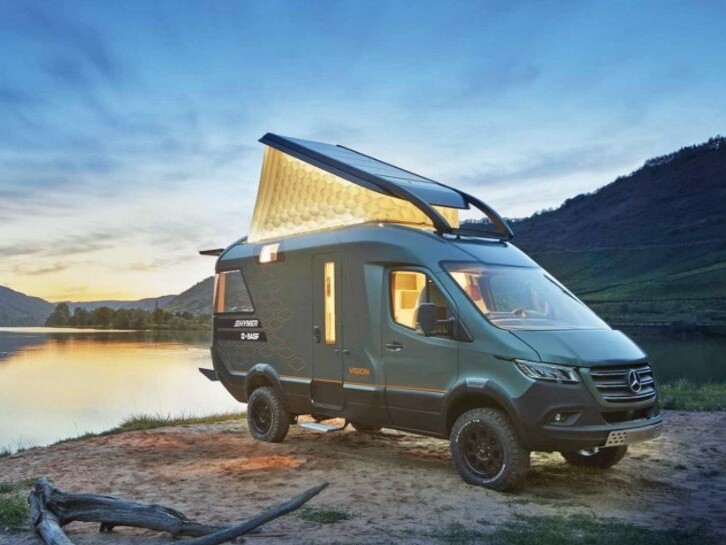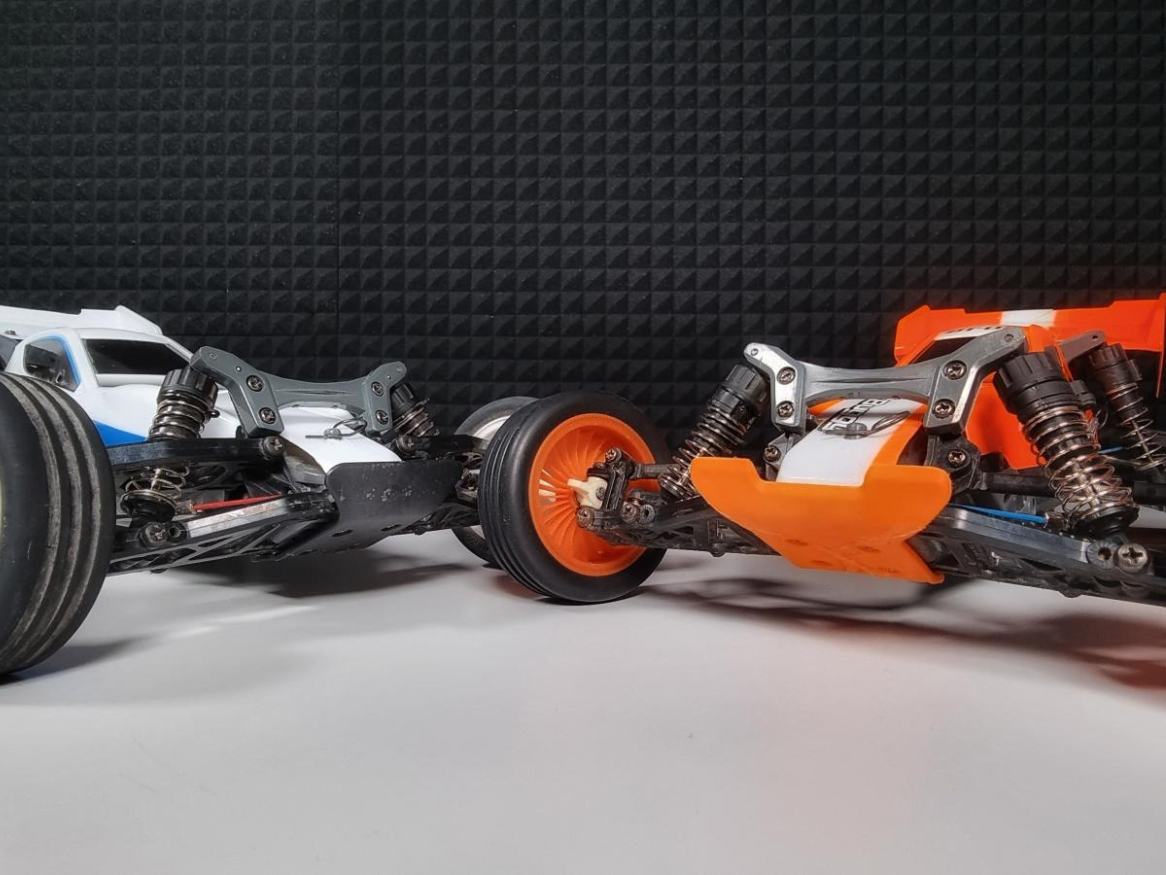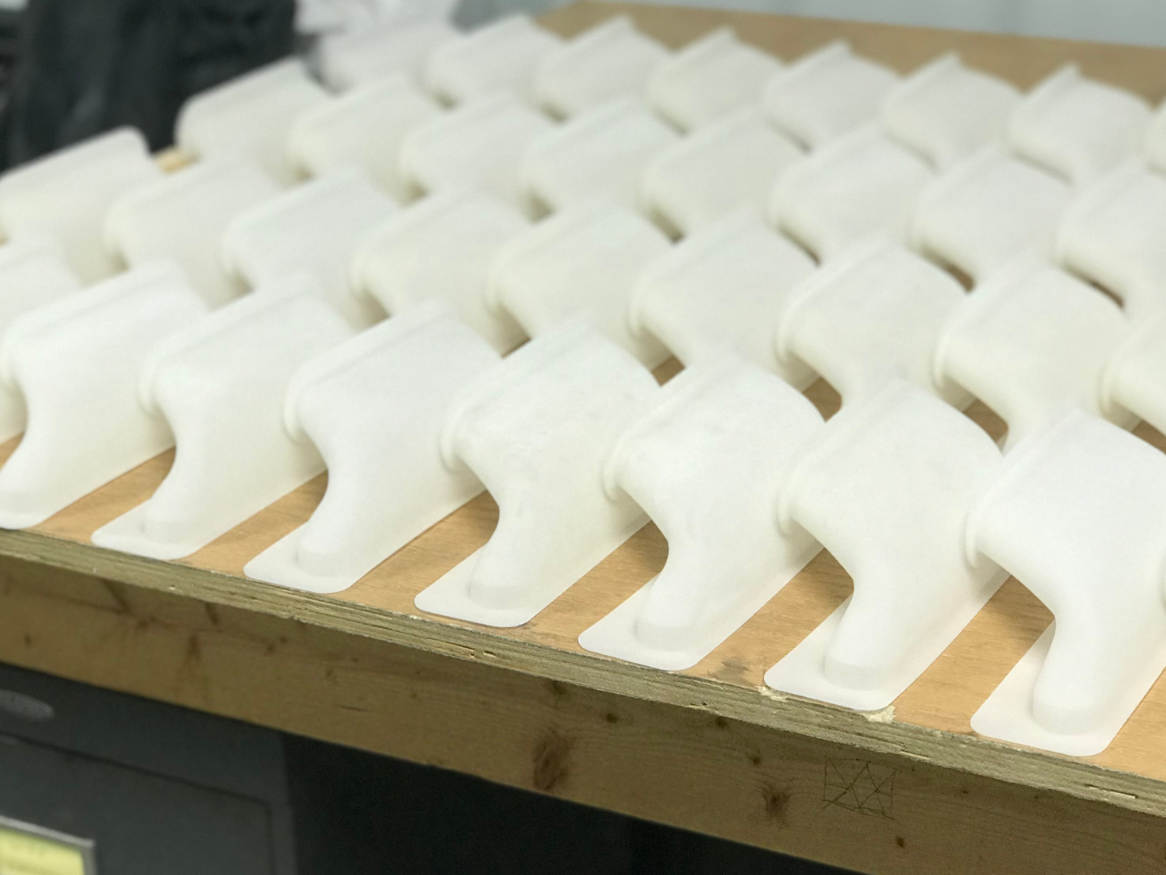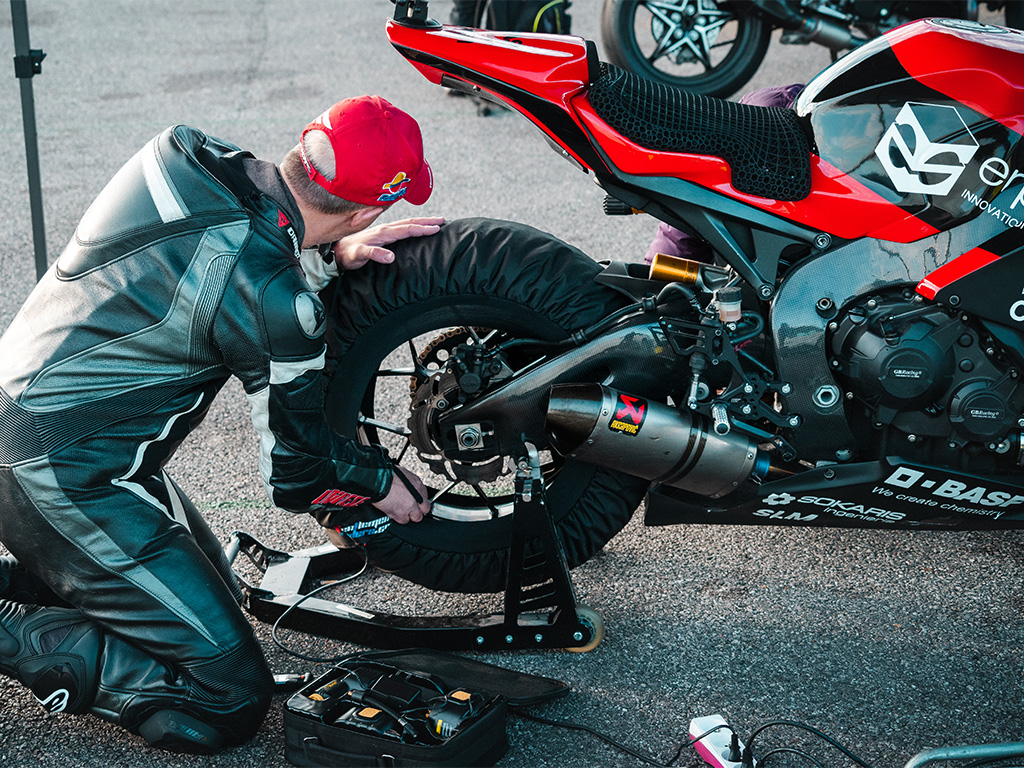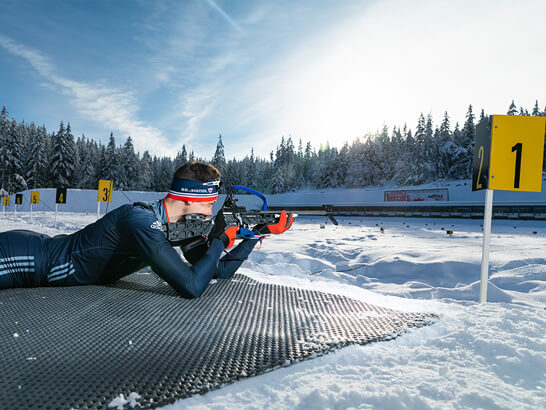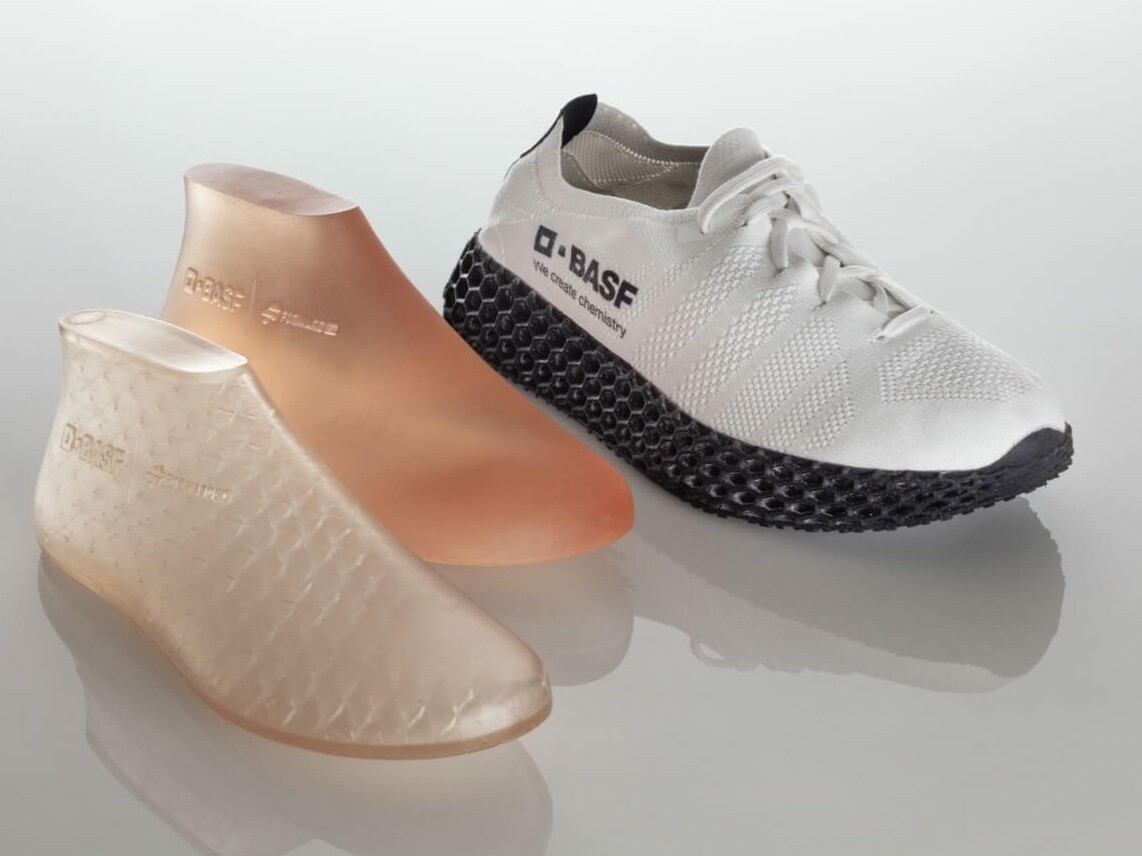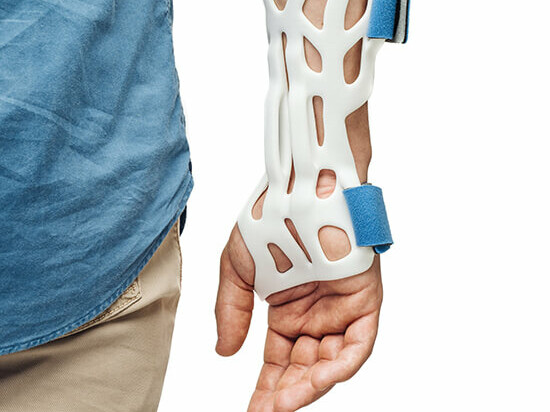Battery Case for Caravans
How UniverCell and Forward AM Sustainably Energize Caravans
The automotive industry is pressing ahead with the development of electric mobility.
Table of Content
- Project Breakdown
- Going electric with lithium-ion batteries
- Dynamizing the business model with AM – high speed, high customization
- Result: A Li-ion battery case tailored to each customer’s needs
- Small changes, great impact: reduction in print time by 75 percent, in cost by 50 percent per part
- Next Steps
Project Breakdown
Industry
Caravanning Industry
Product
Battery case for caravans
Why Forward AM?
Perfect-fit material, 3D design optimization
Forward AM materials used
Ultrafuse® PLA PRO1, Ultrafuse® BVOH
The result
Battery cases tailor-made to individual measurements at high speed, enabling customers to move to lithium-ion technology without having to adjust their manufacturing process. By optimizing the existing design for AM, a reduction in print time by 75 percent and in cost by 50 percent per part was achieved.
Going electric with lithium-ion batteries
The major OEM shift to manufacturing more and more electric vehicles also means demand for a specific component type is experiencing an all-time high: The lithium-ion battery (LIB). Thanks to its attractive properties such as high energy efficiency, lack of memory effect, long cycle life, high energy and power density, LIBs are currently the most suitable energy storage device for powering electric vehicles (EVs). To satisfy the great demand from the automotive industry for LIBs, battery manufacturers are focusing their development and production capacities strongly on this kind of battery, tailored for cars. But there are other automotive segments that are also shifting to the sustainable electric drive with LIBs – the caravanning industry, for example. The current high demand for lithium-ion technology for cars has led to acute scarcity of LIBs for caravans, hindering this segment’s OEMs in taking the next step towards greater sustainability.
Here’s where UniverCell and Forward AM step in. German start-up UniverCell specializes in producing electrodes, cells, modules and batteries based on lithium-ion technology. With the goal of delivering solutions tailored to every OEM customer’s needs, they partnered with Forward AM to develop a solution for LIB-specific battery cases for the caravanning industry.
Dynamizing the business model with AM – high speed, high customization
The dynamic automotive industry is all about speed and the ability to meet individual customer needs – and the sheer flexibility of Additive Manufacturing by Forward AM makes it a perfect technology for the automotive industry. A major acceleration in redesign speed and new freedom for customization are compelling arguments for AM.
Innovative business models benefit from AM in several ways. Building prototypes to present proof of concept is decisive in convincing and acquiring customers. Besides this, AM enables the rapid, cost-effective small-batch fabrication of display models, giving customers a realistic idea of the final product. What’s more, by setting up 3D print farms at UniverCell, the production could scale-up quickly and enable the manufacture of customer-specific cases, flexible enough to deliver tailored solutions even for the mass battery market.
While UniverCell’s expertise in the LIB market and deep product know-how was essential for the development of the battery case, the advanced Additive Manufacturing material from Forward AM was key to achieving the solution: Battery cases for LIBs optimized for caravans. This gives the caravan industry a battery case in production measurements and the possibility to test it under real-world conditions. These factors mean OEMs can at last reliably compare LIB technology to conventional lead-acid batteries with regard to in-operation performance scope, system integration, and pricing.
Result: A Li-ion battery case tailored to each customer’s needs
Harnessing the benefits of Additive Manufacturing enabled the battery case to be manufactured quickly and at a highly customized level. Forward AM carried out “thinking additive” component optimization to redesign the part from scratch through Virtual Engineering and precise simulation:
Small changes, great impact: reduction in print time by 75 percent, in cost by 50 percent per part
The design optimizations done by Forward AM show that supposedly minor changes go a long way:
- adapting the part by optimizing the paths the printhead follows
- removing supporting structures and replacing them by infill structures, which allow the same level of stability at significant reduction of the material required and the time needed for printing
- using the water-soluble filament Ultrafuse® BVOH as support material to decrease time needed for post-processing
In total, these optimizations result in a much shorter print time – from previously 11 days down to 4 days per part – as well as a significant cost reduction by 50 percent.
The component optimization by Forward AM demonstrates that no tremendous changes are needed to significantly improve battery-case functionality – the right combination of small, carefully targeted design tweaks already have a major impact on performance and cost efficiency.
The successful printing of the battery case becomes possible with the AM material of choice: Ultrafuse® PLA PRO1 by Forward AM. This advanced filament is an engineering thermoplastic that prints at speeds previously considered impractical, making it ideally suited for the rapid design iterations of modern prototyping. The high print speed and precision allows the rapid production of even larger batches – the perfect solution for a fast-growing start-up and its highly scalable product.
The joint approach delivered convincing results:
“’Thinking additive’ enabled us to manufacture prototypes rapidly and cost-effectively, so that our customers were quickly able to touch and test. Speed to hands-on will be an essential factor in future if you want to develop high-tech products that convince and inspire.”
Dr Stefan Permien, UniverCell CEO
Share this page
Next Steps
Get in touch
Do you have questions about our materials, technologies or services? Get in touch now!
